(2703 products available)


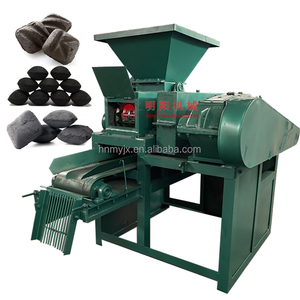


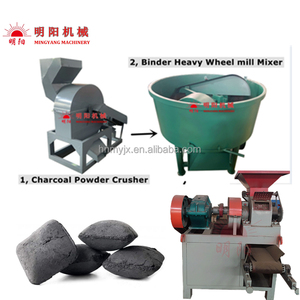
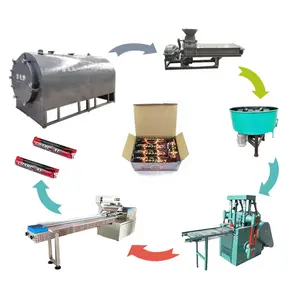






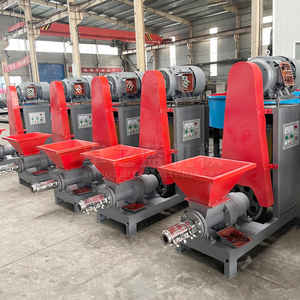












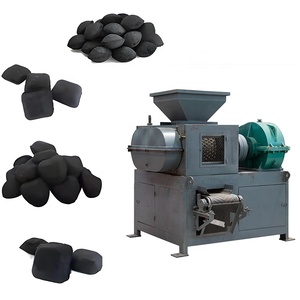



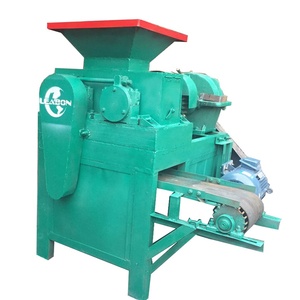


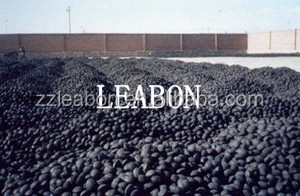

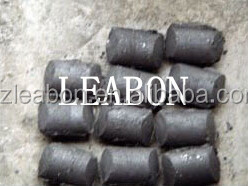


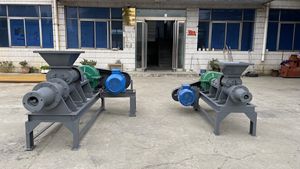

































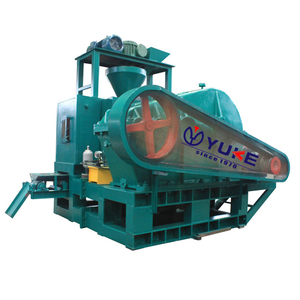



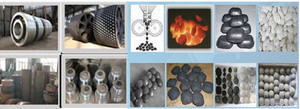













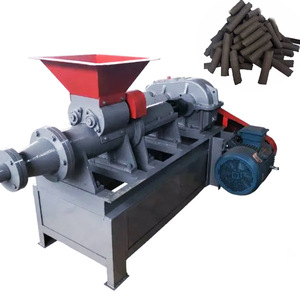
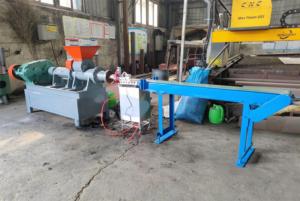


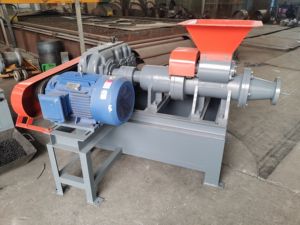
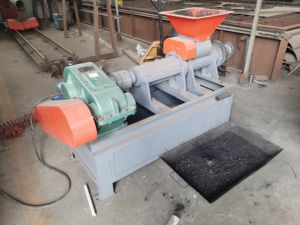








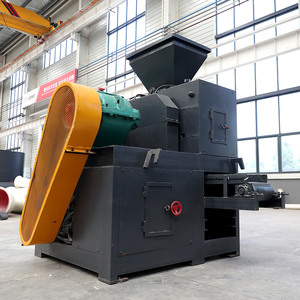


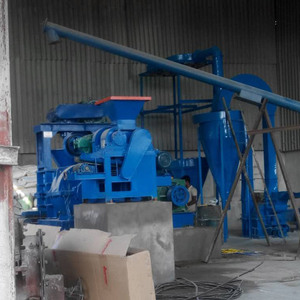








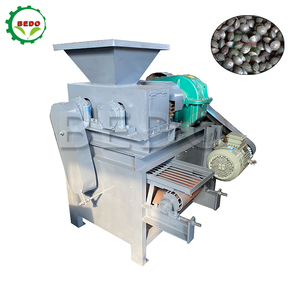

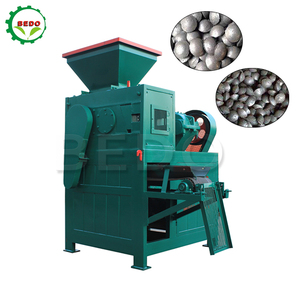
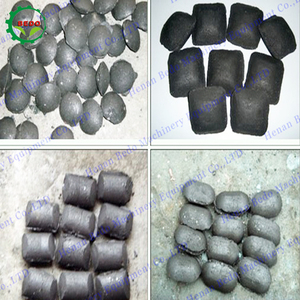
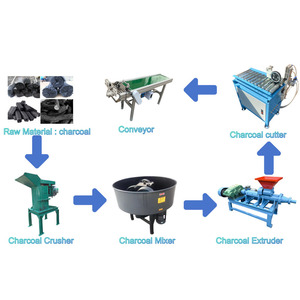
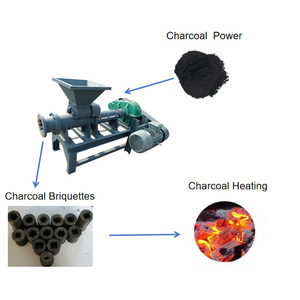





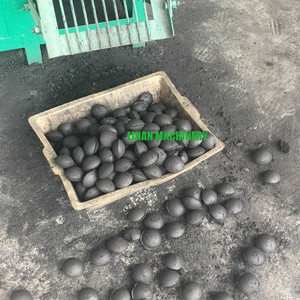




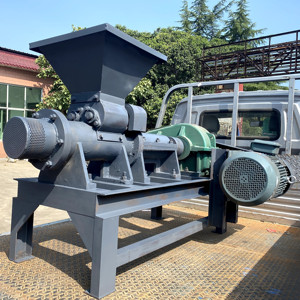
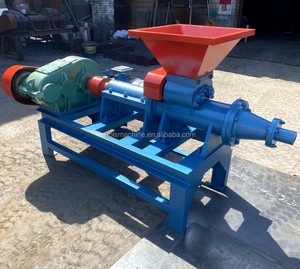

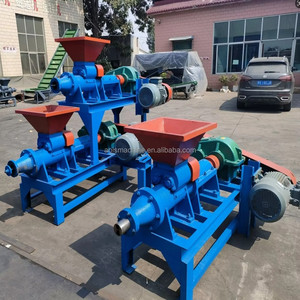

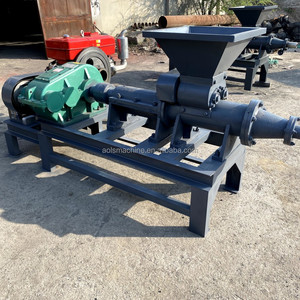







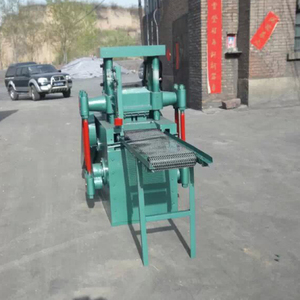

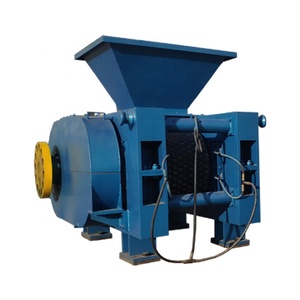

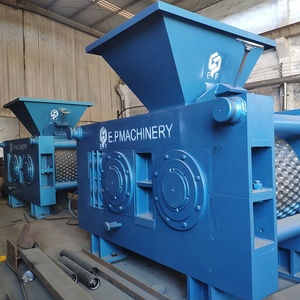






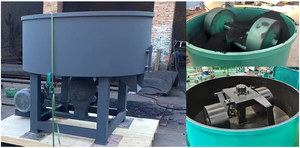



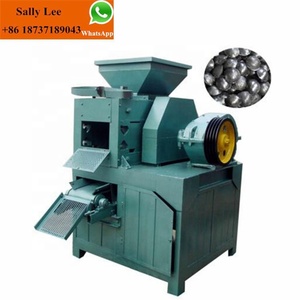


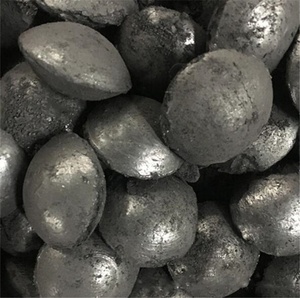
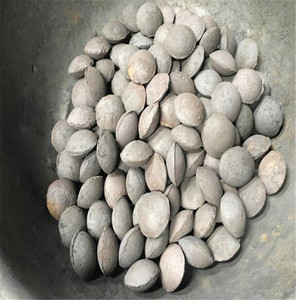


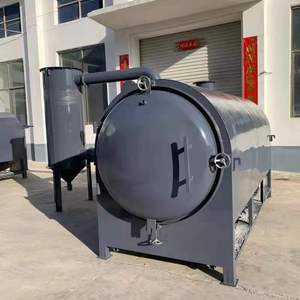
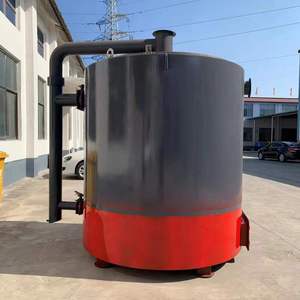





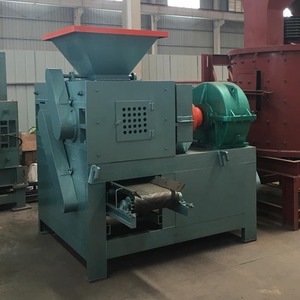
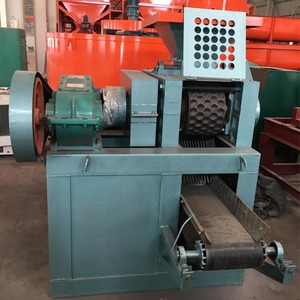

A coal briquette line is a complete set of equipment used to make coal briquettes from various types of coal powder. According to the final usage, different additives can be mixed with the coal powder, and specific machines will shape the briquettes.
Generally, a coal briquette production line includes the following parts:
Crusher
A coal crusher breaks large pieces of coal into smaller, uniform-sized ones to make them easier to briquette. Different types of coal crushers are used according to the client's needs. Common types include hammer crushers and double roller crushers. The former uses high-speed hammers to crush the coal, while the latter uses two parallel rolling drums to smash the coal in between.
Mixer
The coal mixer blends the coal powder with water and other adhesives to ensure the coal briquettes are well-formed and stable. Depending on the type of mixer, it may have different mixing blades, a powerful motor, and a movable hopper.
Briquette machine
The coal briquette-making machine is the central part of the coal briquette line. It shapes the coal mix into briquettes. Several types of coal briquette machines are available. Roller briquette machines create coal briquettes with a circular logo on the surface, while pillow-shaped briquette machines make more traditional-looking briquettes. Other briquette machines use embossing technology to make unique designs on the briquettes.
Besides coal, these machines can use other materials like mineral powder, aluminum dust, iron scale, carbon black, charcoal, and slag.
Dryer
Briquettes need to be dried after being made to enhance their stability and durability. A coal dryer removes the excess moisture from the briquettes. The dryer can be air-coal heat exchange, a vertical dryer, or an oven.
Packaging Machine
Finally, a packaging machine will package the coal briquettes for transportation. This machine may use a conveyor belt to help with the coal briquettes' packaging speed and efficiency.
Dust Control
A dust control mechanism may be used to manage the dust and suppress the airborne particles to improve the occupational health and safety of coal coal briquette lines.
Coal Briquette Line specifications may differ based on the excellence, yield, and machineries included. A highlight of what one can expect in a Coal Briquette Line specification is as follows:
It is essential to follow the manufacturer's recommendations and develop a maintenance schedule for regular inspections, component replacements, and periodic cleaning.
A coal briquettes line can be used by the following businesses:
Charcoal briquette producers
A complete coal briquette production line is mainly designed for wood/biomass-based charcoal. However, some components can also work with coal to produce coal briquettes. Therefore, some charcoal producers can invest in a coal briquette line to diversify their products.
Industrial coal consumers
Industries such as cement, steel, and chemical manufacturing use coal as fuel or raw material in their production processes. By establishing their coal briquette production lines, they can ensure a consistent supply of customized coal briquettes that meet their specific requirements.
Commercial coal consumers
Commercial businesses such as restaurants, hotels, and food processing facilities that predominantly utilize charcoal as fuel for cooking, grilling, or heating can benefit from having their own coal briquette production lines. These establishments can produce their own coal briquettes to maintain a steady supply of affordable fuel for their operations.
Coal briquette suppliers
Small-scale coal briquette producers who lack the necessary equipment and resources to fully process coal into briquettes can benefit from mobile coal briquette lines. These portable production units allow small-scale producers to manufacture coal briquettes on-site, reducing transportation costs and enhancing local production capabilities.
Selecting a coal briquette line requires careful consideration of multiple factors to ensure the end product is satisfactory and the production process smooth.
Raw Material Compatibility:
Different coal briquette production lines have varying capacities to handle diverse raw materials. It's vital to choose a production line that can effectively process the specific type of coal and any supplementary binding agents or additives used in the briquettes.
Production Capacity:
When selecting a coal briquette line, one must ensure that the production line's capacity corresponds to the projected output demands. Whether small-scale, medium-scale, or large-scale production is necessary, the chosen line should fulfil these requirements to avoid potential bottlenecks or overcapacity.
Briquette Quality and Types:
The chosen machine must create briquettes of the desired quality and type, as mentioned before. Different production lines have distinct compressing methods—mechanical presses or hydraulic presses—and die shapes and sizes. All these factors influence the strength, density, and appearance of the briquettes.
Technological Features:
Consider the technological features of different briquette-making coal lines, such as automatic feeding, controlling temperature and pressure during briquette formation, and post-production handling. Advanced features can enhance production efficiency and product quality.
Cost and Budget Considerations:
The cost of a coal briquette production line varies greatly, depending on the scale and technological features. It's crucial to evaluate the overall costs, including equipment, installation, and maintenance expenses, while also considering potential long-term profits.
Space Requirements:
The dimensions of the coal briquette line must be taken into account, as it needs to fit well into the available production facility space. A layout that optimizes production flow is as necessary as equipment that fits.
Environmental Compliance:
As environmental concerns increase, selecting a coal briquette line adhering to stringent environmental regulations becomes crucial. Lines with effective dust collection systems, water filtration management systems, and low-emission technologies can assist in minimizing environmental consequences and promoting sustainable practices.
Service and Support:
It's vital upon selection to consider after-sales service and support, such as equipment installation, commissioning, and maintenance. Prompt and reliable technical support can help ensure smooth production operations and quickly resolve potential issues.
Q: What is a coal briquette?
A: A coal briquette is a compressed storage form of coal. When your storage is vast and needs to be burned slowly, briquettes are excellent. It is made through high pressure and high temperature, and the materials are tightly bound together, which results in lowporosity blocks.
Q: Why is briquette preferable?
A: Briquettes produce more energy than coal and charcoal. It is also environmentally friendly because it decreases pollution by forest authorities and the government. The ash from the material is only 10% of coal ash, and it is easy to transport and store.
Q: What are the types of briquettes?
A: The types of briquettes are charcoal briquettes, biomass briquettes, wood briquettes, and fling ash briquettes. The most popular one is the biomass briquette made from bio or plant wastes like straw, sawdust/staves, rice husk, and other agri-wastes. Cities close to countryside areas can take advantage of this. The coal briquette production line can use these materials.
Q: What are the advantages of a coal briquette machine?
A: It can use diverse coal materials and has great adaptability, particularly for inferior coal that other machines cannot use. No additional adhesives are required. It is high-pressure and high-temperature, making coal briquettes more robust and denser. The transformation of coal into charcoal reduces gas and air pollution during the transport process, making it easy to store coal that is not of superior quality.
Q: How much does a coal briquette line cost?
A: The cost will depend on the size and capacity of the machine, the material of the machine, the customizations, and other specifics. A small to medium-sized machine may cost between USD 5,000 to USD 20,000. Larger machines will be above that.